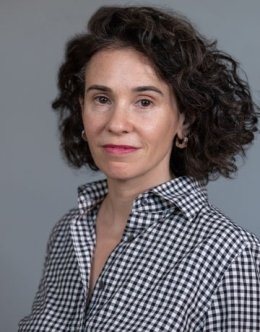Why or in what ways is writing important to your discipline/field/profession?
For youth workers, writing provides a way to convey thinking and beliefs in visible ways. In personal forms of writing like journals and notes, writing is a way to “think aloud on paper.” Having ideas, descriptions, observations and stories written down enables a writer to get distance from an idea, to leave and come back to an idea, to revise an idea or story. In more public and professional forms of writing like letters, blogs, activity plans and essays, writing is a way to communicate ideas, concepts and stories to others.
Which courses are designated as satisfying the Writing in the Discipline (WID) requirement by your department? Why these courses?
The following courses: YDEV 300: Introduction to Youth Development and YDEV 352: Seminar in Youth Development were selected because they represent the beginning and the more mature application of writing practices.
In YDEV 300, students construct and learn the foundations of reflective writing practice and activity planning. In YDEV 352, students apply their learning to an authentic, larger writing task. They also continue the practice of developing activity plans.
YDEV students also take a Social Work course that has been designated as WID by the School Of Social Work: SWRK 326: Generalist Social Work Practice.
In this course, students learn how to conduct social assessments and produce the accompanying write-up. Additionally, students learn how to take professional notes for client files and work on other forms of professional writing such as referrals and client summaries.
What forms or genres of writing will you learn and practice in your WID courses? Why these genres?
Reflective writing, including storytelling and narrative inquiry, is an essential practice of youth work because it resists the disembodied discourse of “outcomes-based” education. The process of storytelling is a humanizing, reflective practice that provides opportunities to understand and enhance youth work and administrative practice. Storytelling supports personal identity work, one of the anchors of the YDEV program. Storytelling and counter-storytelling are also forms of academic research in youth development. Forms might include journals, blogs, letters, analytical essays, notes and captions. Activity plans provide a structured way to organize purposeful interactive sessions with young people.
What kinds of teaching practices will you encounter in your WID courses?
Youth development courses are designed with a spiral curriculum approach (see Jerome Bruner). A spiral curriculum has three key elements: Students encounter the same content across several courses; the study of the content becomes deeper and more nuanced over time; and students continually make connections between their knowledge and course content. A spiral curriculum provides students opportunities to develop complex thinking and expertise over time. The curriculum promotes inclusivity because it invites students to contribute their own knowledge and perspectives as they together learn topics and practices. Reflective writing, which includes storytelling, and activity planning are spiraling practices in the youth development program.
Practices that students will encounter in YDEV courses include low stakes writing assignments, peer and instructor feedback, revisions, writing rubrics and scaffolded assignments and templates. Students will also read scholarly models of reflective writing about youth work practice (e.g. Bianca Baldridge, Shawn Ginwright, Mark Krueger and Bettina Love).
When you have satisfied your WID requirement, you should know and be able to:
Through reflective writing, students come to know themselves. By the end of the program, students are able to situate their own beliefs about youth work in the context of both established theories and practice in the field. They have also developed skills in writing activity plans that have intentional purpose and values and that can be easily shared with colleagues. They know who they are as youth workers, and they can articulate their values and theories of change.



